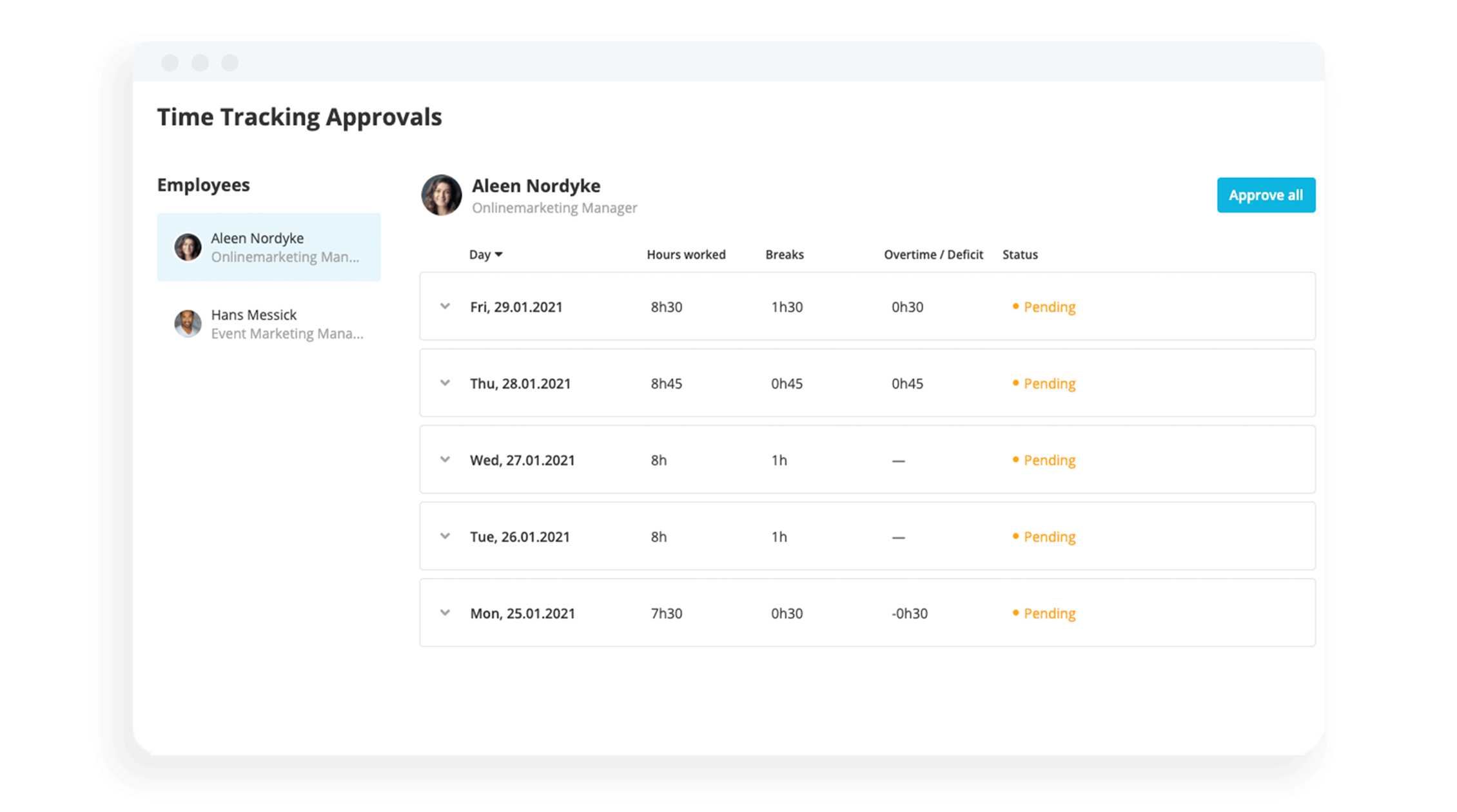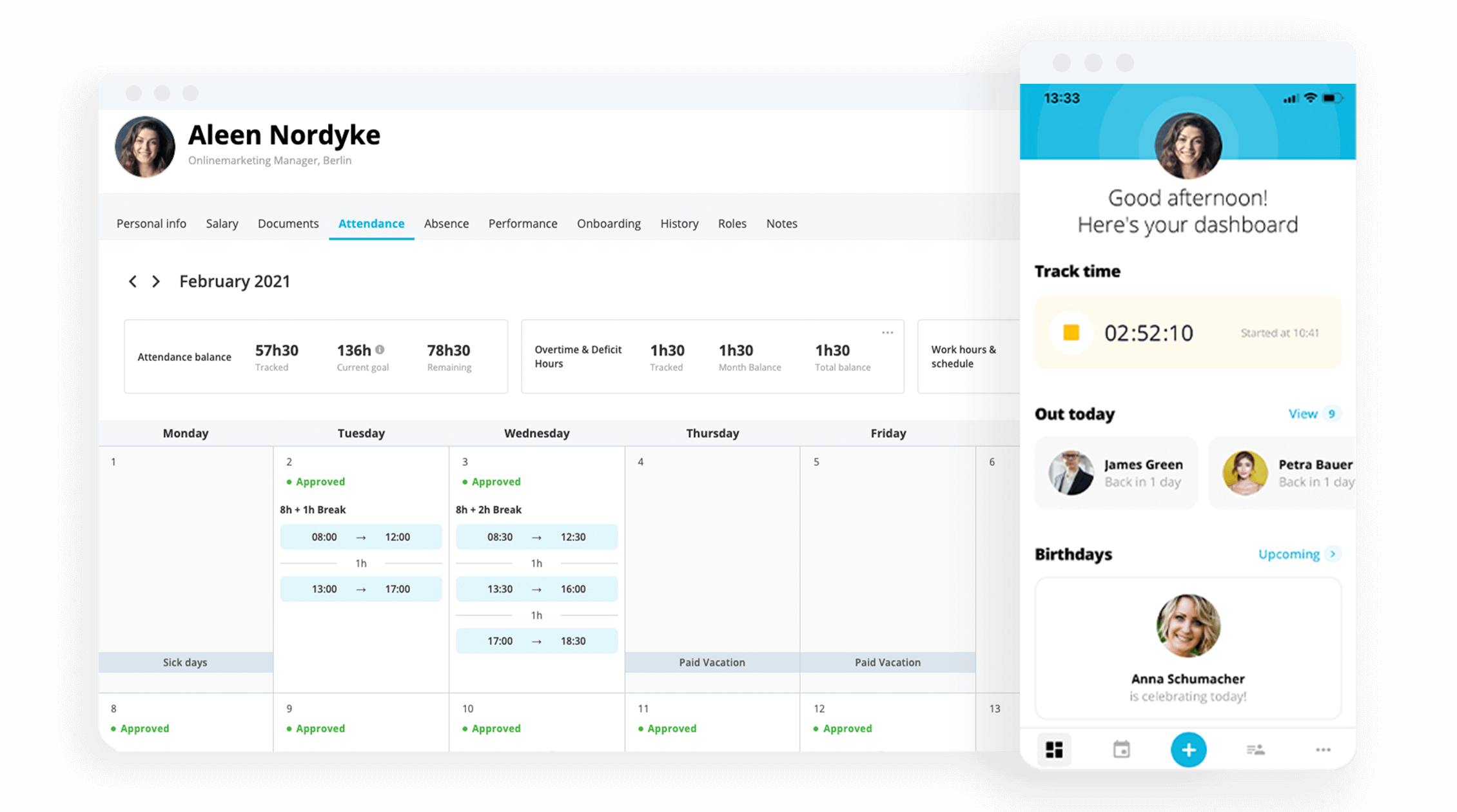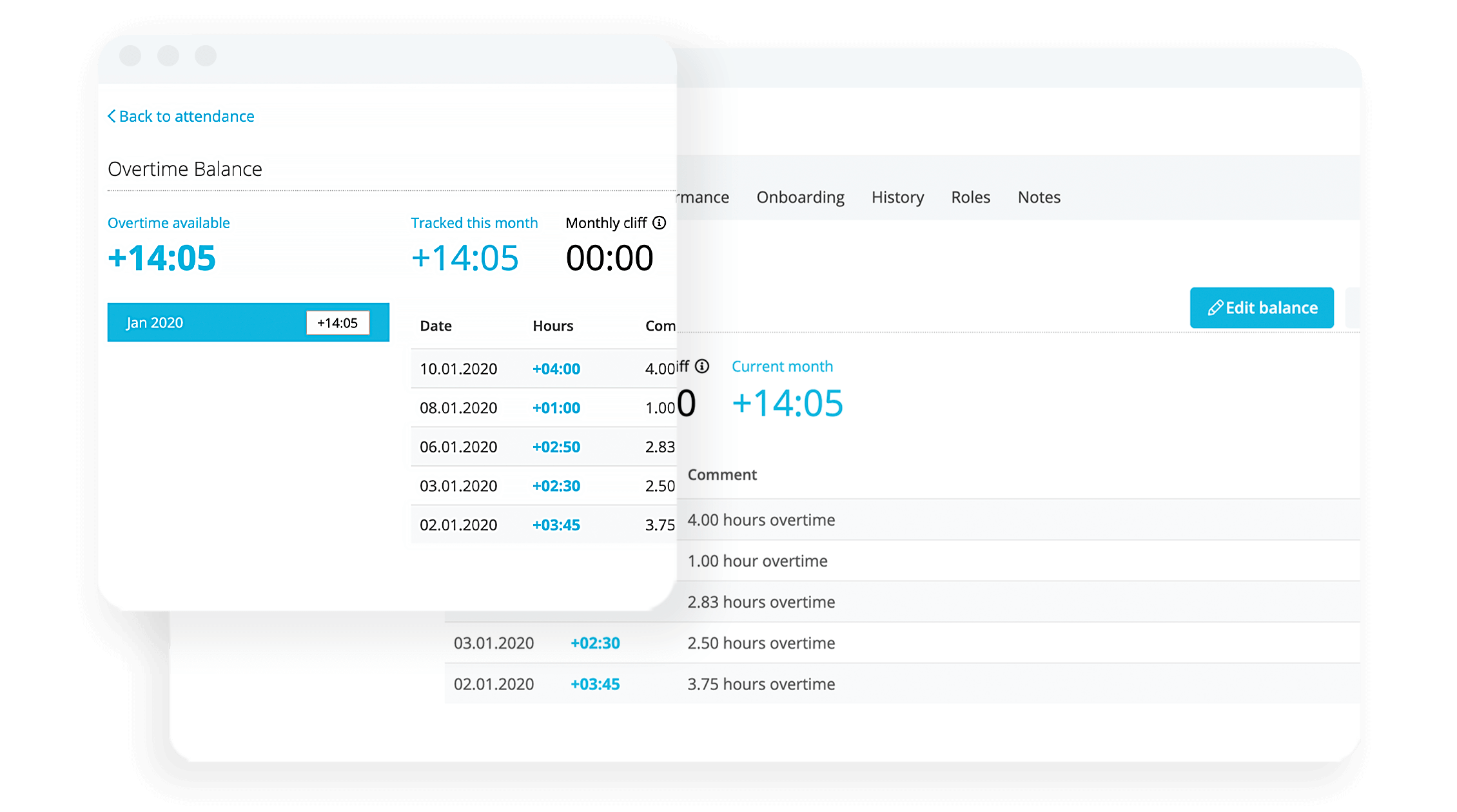8. August 2022
Staying Compliant With Spain’s Time Tracking Laws

It’s no coincidence that European countries have the best work-life balance in the world. According to the Organisation for Economic Co-operation and Development (OECD), a key element of work-life balance is getting enough time for leisure without ending up working long hours.
To ensure this is the case, the European Union’s Working Time Directive regulates the working hours of employees in Europe. In this blog, we’ll take you through the recent updates on Spain’s time tracking laws and what that means for companies operating within their borders.
Start tracking time and attendance with Personio today.Brief Background: The EU’s Working Time Directive
The EU’s Working Time Directive regulates the working hours in the EU member states. Since 2003, there have been guidelines laid out on employees’ health and safety. Companies in EU member states need to adhere to the following guidelines:
Working Hours | Employees can't work longer than 48 hours per week, and must be provided a break after 6 hours of work. |
|---|---|
Resting Hours | Employees must have at least 11 consecutive hours of daily rest (in every 24 hour period), and a minimum of 24 hours of uninterrupted weekly rest. |
Time Off | Employees have the right to at least 4 weeks of paid leave per year. |
Overtime | Member states may allow individual employees to opt out of the 48-hour week limit (under strict conditions). |
Night Shift | Night workers should not work more than an average of 8 hours per 24-hour period. If they perform dangerous or strenuous work, they must not work longer than 8 hours in any 24-hour period. |
What Has Changed?
Previously, it was not required for companies to track and record the working time of their employees. However, as a result a lawsuit against the Spanish subsidiary of Deutsche Bank by Federación de Servicios de Comisiones Obreras (CCOO), the Spanish trade union, it became obvious that without tracking and recording working hours of employees, it is hard to determine if employees are being overworked.
On May 14th 2019, the European Court of Justice (ECJ) ruled that EU member states must require all companies to record the daily working time of their employees.
Is That Everything You Need To Know?
It all depends on the EU member state that your company currently operates in. Now, let’s dive into Spain and its time tracking laws…
Time Tracking Regulations in Spain
The Spanish federal government has adopted most of the guidelines laid out by the EU working time directive.
In fact, Spain is one of the first EU member states to make it mandatory to track and record working hours of employees, with some exceptions for top-level executives. This applies to all companies in Spain, irrespective of the company size or industry.
So if your company is operating in Spain, here’s what you need to know:
Track and record working hours, including employees’ breaks.
Keep such records for 4 years and make them accessible to all employees, government and trade unions.
There is no specification on what methods or formats to be used for tracking and recording the working hours of employees.
Remote or office-based work, and the type of contract are irrelevant – the employer needs to track the time.
Companies that fail to comply with the rules face fines from €625 to €6,250.
How Personio Makes Compliance Effortless
By now, it’s quite evident that most EU member states are expected to track and keep record of the working hours of their employees.
That said, there are no specific laws on what methods or tools should be used to track and store such information.
Since time tracking is a continuous and never-ending process, it’s a lot easier if you use automated solutions rather than written documents or Excel sheets.
With Personio, you can easily track and record working hours of employees without any unnecessary effort.
Easily Track and Record Working Hours
Tracking and recording the working hours of employees can be quite time-consuming and riddled with inaccuracies. Excel sheets are also not ideal, as they can quickly get complicated and cumbersome.
Using Personio, you can enjoy a highly simplified process and automation using predefined workflows. In addition, Personio’s mobile app makes it even easier to track working hours from just about anywhere.

Instant Reports on Employee Information
Another time-saving technique is fast access to instant reports. No need to run any formulas or queries with time tracking analytics readily available in Personio. Moreover, you can also set up project-based time tracking, to know specific hours spent on any particular project.

Automatic Overtime Calculations
Automatically calculate overtime hours by pre-defining working hour schedules. That’s not all, though, as you can also automate overtime salary calculations and transfer overtime hours over to preliminary payroll.

Key Takeaway: Tracking Working Hours in Spain
If you are a company located in Spain, you need to make sure to track the attendance and working hours of your employees, keeping in mind that the law doesn’t specify how this has to be done.
So, you have the choice to choose a system that works best for you and your team. Personio comes with automated attendance and time tracking solutions that would make your life a lot easier while helping you stay compliant with far less effort.
If you’re interested in a demo or have more questions, just drop us an email at hello@personio.com. We’ll get in touch with you!

